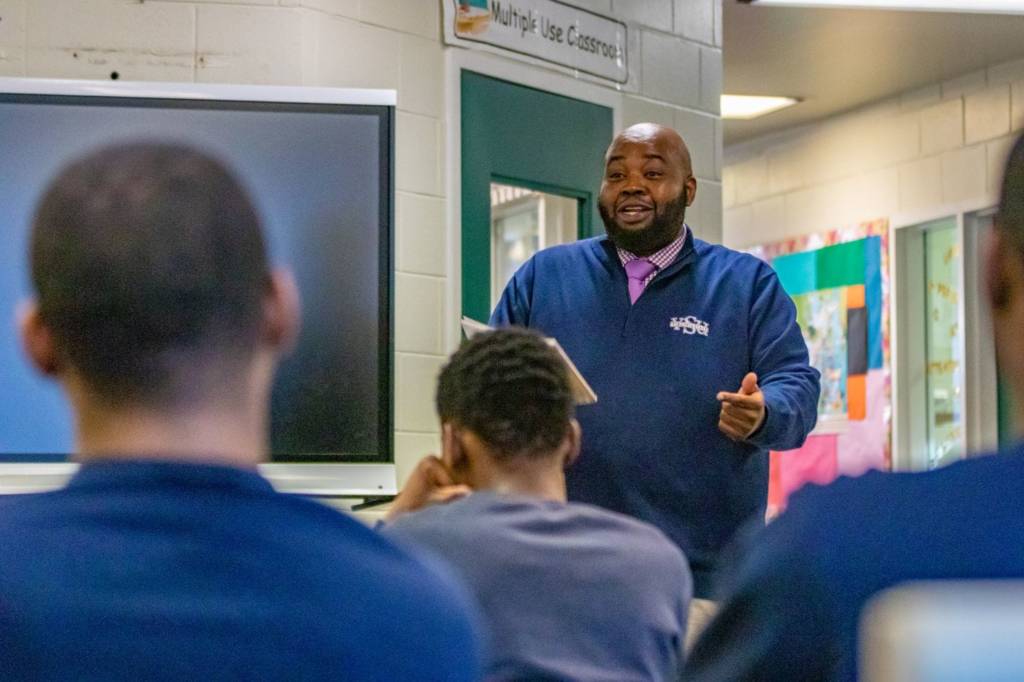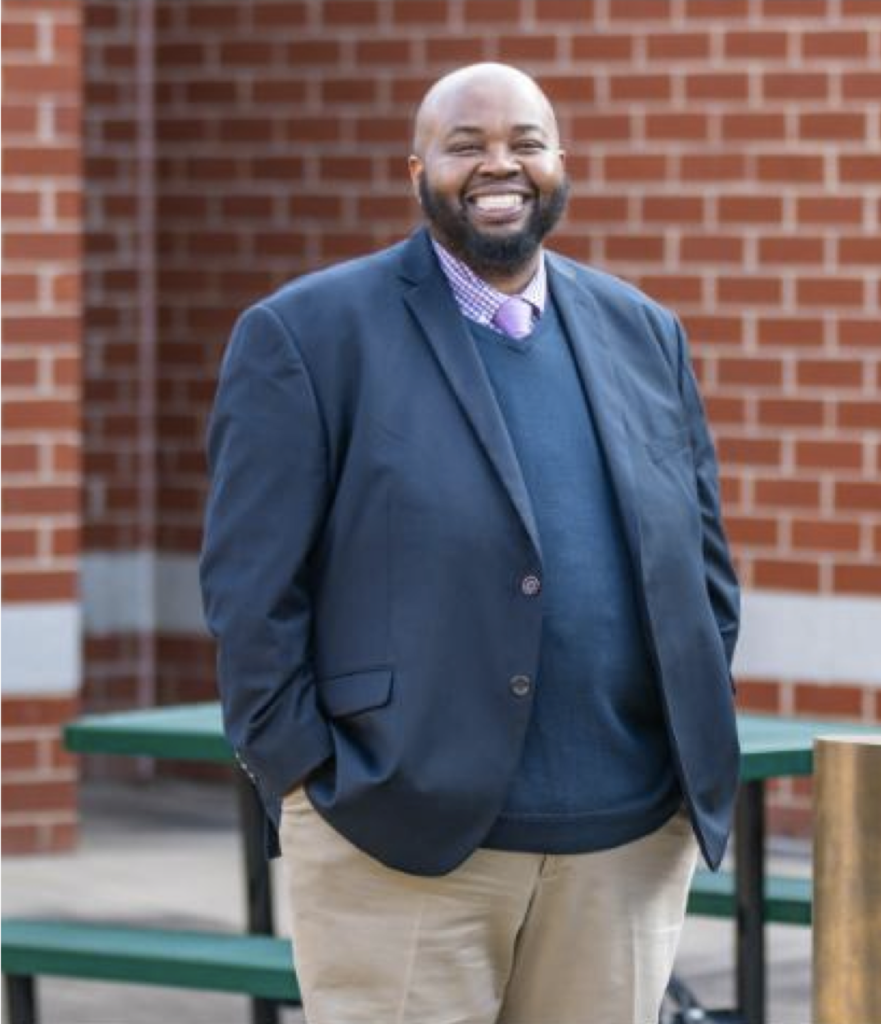
Rodney Robinson's smile couldn't be any bigger after he was awarded 2019's National Teacher of the Year. Robinson, who has taught for the last 19 years, has been published three times by Yale University and has received numerous awards for his accomplishments in and out of the classroom, most notably the R.E.B. Award for Teaching Excellence. And that's not all! He is a member of Richmond Mayor Levar Stoney’s Education Compact Team, which includes politicians, educators, business leaders, and community leaders, and is working with city leaders and local colleges to recruit underrepresented male teachers into the field of education. He has also worked with Pulitzer Award-winning author James Foreman on developing curriculum units on race, class, and punishment as a part of the Yale Teacher’s Institute.
Robinson was selected in the annual Teacher of the Year program, which is sponsored by the Council of Chief State School Officers. Every year, winners are selected from each state as well as the District of Columbia, all U.S. territories and the Department of Defense Education Activity. They all come to the nation’s capital in the spring for the annual Teachers of the Year week, where the national winner is named.
He was chosen by a national selection committee representing the major national education organizations. Each spring, the NTOY is usually introduced to the American people by the U.S. president. During the official year of recognition, the NTOY is released from classroom duties to travel nationally and internationally as a spokesperson and advocate for the teaching profession. NTOYs speak at over 150 events each year before audiences ranging from several hundred to over 10,000and are often asked to sit on national and state commissions and policy advising bodies.
While Teachers of the year can come in all grades and schools, Robinson's school is a little different.
"I work in a juvenile jail," explains Robinson to NPR. "My students range in age from 12 to 19 — from, on average, sixth grade up to 12th grade. They're on varying levels. My facility has a capacity of 60 students. I'd say about a third have been sentenced, and the other two-thirds are being tried or awaiting sentencing. I could have a student who's only there for two days sitting next to a student who's been waiting two years for trial."
"It's my job to fit the needs of each and every student no matter what they bring to the table and make them feel loved and appreciated and inspire them to do whatever they want to be."

He says he strives to make his teaching culturally relevant to his students: "You have to use what your kids know and what your kids experience," he says, " to create a positive learning environment for them." Robinson said.
"When I started working at Virgie Binford Education Center inside the Richmond Juvenile Detention Center, I was extremely disturbed by the institutional look and feel of the building," explained Robinson in his Teach of the Year application. "The walls were white and dull throughout the building. The environment was depressing and felt nothing like a school. It had the look of a maximum security adult prison without the bars. The school only had two assemblies throughout the year, a Christmas program and a Black history program. My goal was to improve the morale of the students and create a thriving positive school culture by decorating the building with motivational displays and increasing the number of positive student interactions."
"First, I asked the students to name some of their heroes. They researched those people and created displays of motivational quotes by their heroes to cover some of the walls. We also created several murals dedicated to the struggle of minorities, mainly African Americans because 99 percent of my students are African American. A pictorial timeline of African American history is displayed as they exit with a motivational sign challenging them to make positive contributions as they enter back into society. The students and I also added colorful displays of places around the world they wanted to travel to, as well as Black Lives Matter, Black Girls Rock, and Black Girl Magic displays."
"I collaborated with and challenged my coworkers to improve the school culture. Change became our school motto. We adopted a growth mindset in all subjects. We have monthly assemblies with motivational speakers to honor students and inspire them to overcome their current situations. An annual career day was added with colleges, businesspeople, government agencies, and celebrities who recruit students and create relationships to help them become productive citizens when they are released. We also ordered college banners to hang on every window throughout the building."
President Trump also skipped out on Robinson's ceremony honoring him at The White House.
Trump's decision to avoid the event came a year after...
... the 2018 national winner, Mandy Manning, of Washington, wore several pins to silently protest the Trump administration's LGBTQ and immigration policies. After the event, Manning also gave Trump a bundle of letters from immigrant and refugee students.
After the ceremony, Trump invited Robinson and other state winners in the Teacher of the Year program into the Oval Office to meet with him, Vice President Pence and DeVos, a White House spokesman said.
"One of my proudest achievements is having five of my former students work as Richmond Public Schools teachers. They are not only great teachers, but several have been awarded and received recognition for their youth development programs. They are not only mentors but parents for their students. When I asked Doron Battle, a former student and exceptional education teacher at George Mason Elementary School, why he runs a mentoring program, he said, 'I am just trying to do for the next generation what you did for me and my classmates.'”








